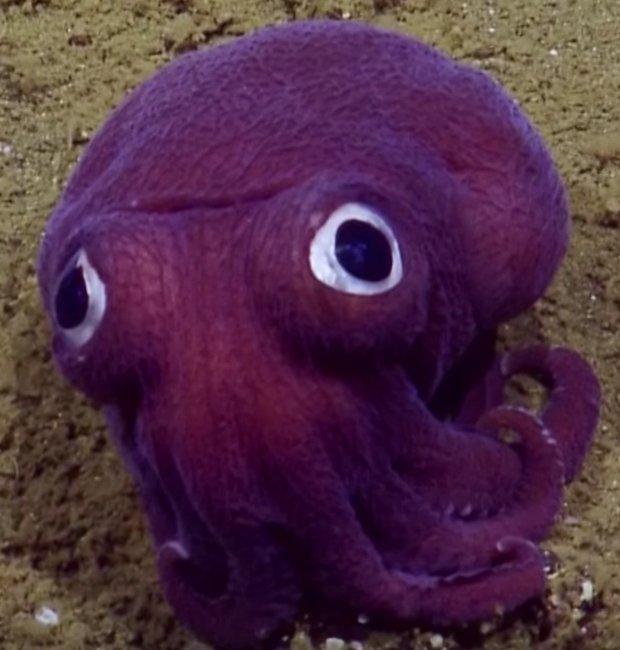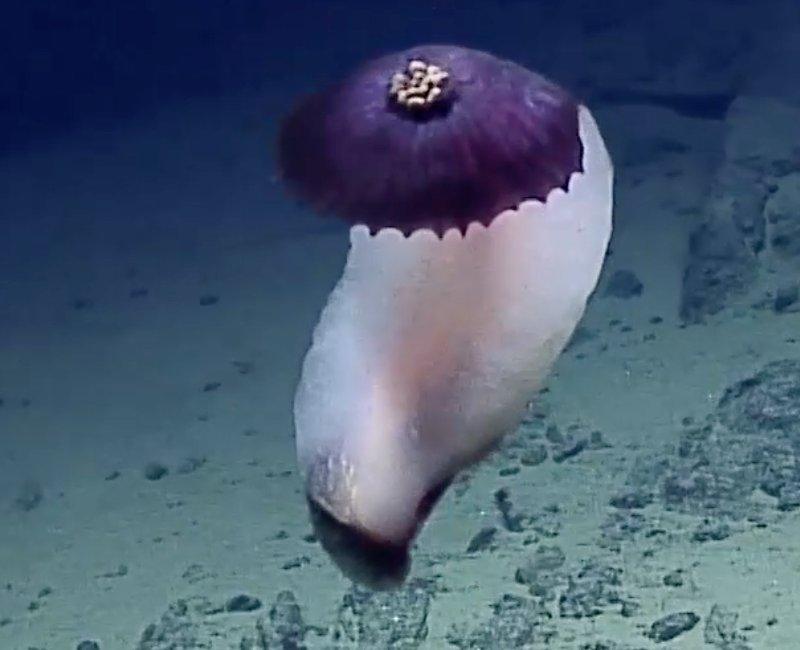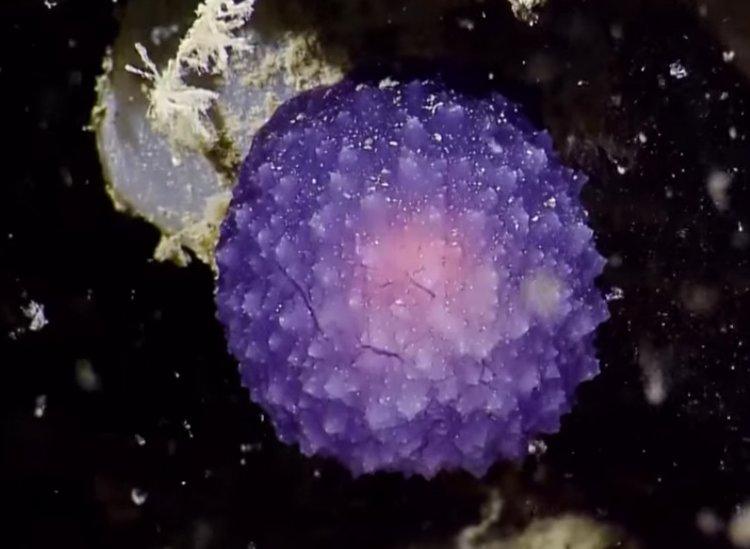Strange purple sea creatures found in deep ocean trenches
- Published

A stubby "googly-eyed" purple animal looking like a cross between an octopus and a squid
Scores of spectacular and rare under sea species have been found by expeditions this year to some of the deepest trenches in the Pacific Ocean.
They include strange purple orbs, "mud monsters" and a bizarre swimming sea cucumber reminiscent of a flying Mary Poppins.
Another voyage found around 500 new undersea methane vents off the US west coast.
This doubles the number of known seeps, bubbling up a powerful greenhouse gas.
The gas vents were found by an expedition mounted by Dr Robert Ballard, the man who first located the wreck of the Titanic.

An acorn worm that's described as a bizarre purple 'mud monster'
In his ship, the Nautilus, the Ballard team found new vents which were discovered off Washington, Oregon and California.
Little is known about the amount of methane that is coming out from these vents and how much is entering the atmosphere. But researchers say the new discoveries may better inform global estimates of these emissions.
"Methane seeps were basically unknown 20 years ago," said Prof Jesse Ausubel, from the Rockefeller University, part of the Nautilus team.

A strange floating sea cucumber, said to be reminiscent of Mary Poppins
"At first people thought they were incredibly rare and now, thanks to these expeditions, these seeps may be very widespread, so the (methane) budgets may have to be recalculated, that's why the exploration is important."
One of this year's key expeditions mounted by the US National Oceanographic and Atmospheric Administration, external (NOAA), was a 59 day exploration of the Marianas Trench, the world's deepest underwater canyons.
As well as discovering three new "black smoker" hydrothermal vents stretching up to 30 metres in height, the voyage also revealed some rarely seen, mysterious creatures.

Rare and mysterious creatures have been discovered on this year's deep voyages include this purple orb
"I think it's always surprising what we find," said Dr Nicole Raineault, director of science operations at the Ocean Exploration Trust, external, which organised the expedition.
"We've looked in the Mediterranean, the Gulf of Mexico, the Caribbean and now the eastern Pacific Ocean with these remotely operated vehicles to get images of the sea floor, and we are continually surprised with the variety of life that we find."
"It just underscores how little we know about the ocean and how much more there is to discover our there."
Follow Matt on Twitter @mattmcgrathBBC, external and on Facebook, external.